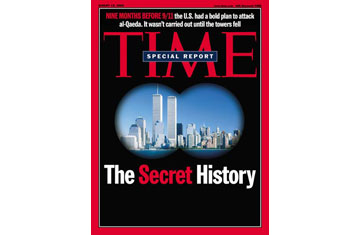
(9 of 19)
In Washington, Dick Clarke didn't seem to have a lot of friends either. His proposals were still grinding away. No other great power handles the transition from one government to another in so shambolic a way as the U.S.--new appointments take months to be confirmed by the Senate; incoming Administrations tinker with even the most sensible of existing policies. The fight against terrorism was one of the casualties of the transition, as Washington spent eight months going over and over a document whose outline had long been clear. "If we hadn't had a transition," says a senior Clinton Administration official, "probably in late October or early November 2000, we would have had [the plan to go on the offensive] as a presidential directive."
As the new Administration took office, Rice kept Clarke in his job as counterterrorism czar. In early February, he repeated to Vice President Dick Cheney the briefing he had given to Rice and Hadley. There are differing opinions on how seriously the Bush team took Clarke's warnings. Some members of the outgoing Administration got the sense that the Bush team thought the Clintonites had become obsessed with terrorism. "It was clear," says one, "that this was not the same priority to them that it was to us."
For other observers, however, the real point was not that the new Administration dismissed the terrorist theat. On the contrary, Rice, Hadley and Cheney, says an official, "all got that it was important." The question is, How high a priority did terrorism get? Clarke says that dealing with al-Qaeda "was in the top tier of issues reviewed by the Bush Administration." But other topics got far more attention. The whole Bush national-security team was obsessed with setting up a national system of missile defense. Secretary of Defense Donald Rumsfeld was absorbed by a long review of the military's force structure. Attorney General John Ashcroft had come into office as a dedicated crime buster. Rice was desperately trying to keep in line a national-security team--including Rumsfeld, Cheney and Secretary of State Colin Powell--whose members had wildly different agendas and styles. "Terrorism," says a former Clinton White House official, speaking of the new Administration, "wasn't on their plate of key issues." Al-Qaeda had not been a feature of the landscape when the Republicans left office in 1993. The Bush team, says an official, "had to learn about [al-Qaeda] and figure out where it fit into their broader foreign policy." But doing so meant delay.
Some counterterrorism officials think there is another reason for the Bush Administration's dilatory response. Clarke's paper, says an official, "was a Clinton proposal." Keeping Clarke around was one thing; buying into the analysis of an Administration that the Bush team considered feckless and naive was quite another. So Rice instructed Clarke to initiate a new "policy review process" on the terrorism threat. Clarke dived into yet another round of meetings. And his proposals were nibbled nearly to death.
